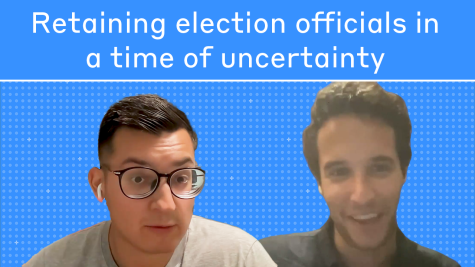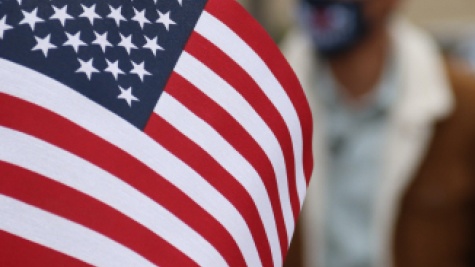Election Administration Spending in Local Election Jurisdictions
Results from a Nationwide Data Collection Project
The MIT Election Data and Science Lab helps highlight new research and interesting ideas in election science, and is a proud co-sponsor of the Election Sciences, Reform, & Administration Conference (ESRA).
Zachary Mohr, Martha Kropf, JoEllen Pope, Mary Jo Shepherd, and Madison Esterle recently presented a paper at the 2018 ESRA conference entitled, “Election Administration Spending in Local Election Jurisdictions: Results from a Nationwide Data Collection Project.” Here, they summarize their analysis from that paper.
While the amount and type of election data available has increased as policymakers help it become more accessible and centralized, the actual financial cost of elections in the United States remains a relative unknown. We have begun collecting election expenditure data from audited financial reports in order to understand what resources are required to run elections, as well as to work toward comparisons over time and across states. In particular, we have gathered data from annual financial reports (AFRs); we now have these data from more than half of the states.
In our new paper, we discuss the measurement and conceptualization of the costs involved in elections, and the ways that this cost can be operationalized. By this, we mean not just the direct costs of one particular election, but also the costs for personnel, voter registration work, other “between election” costs. Although cost data can come from various sources — including budgets, audited financial statements, and cost accounting — we ultimately focused our research and discussion of election costs on the financial data provided by AFR expenditures. We did so because of the availability of the data, and because AFRs record the expenditures on election administration that a jurisdiction recognizes and records for a particular fiscal year. However, this should be noted as a lower bound estimate of cost, as we cannot be sure that certain shared costs, or other costs like retirement and other benefits, are always being included in the election cost estimate.
Based on the data that we’ve collected, we estimate that the cost per voter in the United States is a little over $8 per voter, for a total local election cost of about $2 billion per year. This varies over time by both election cycle and possibly economic cycle. Between 2009 and 2016, the average election administration expenditure was lowest in 2011 (when the average expenditure per voter was $7.26), and highest in 2016 (when the average was $9.33).
There is also substantial variation in expenditure per voter by state, with a high of over $15 in Florida and a low of just over $2 in Michigan. These cost differences may be due to differences in state-local cost sharing arrangements, and/or because of different costs recognized in the financial reports of that election jurisdiction.
Collecting cost data in multiple states over several years allows for hierarchical modeling of election costs. We perform a two level hierarchical model to show that economies of scale are generalizable to the United States. This finding is robust to many forms of alternative specification. It allows us to say that economies of scale are generalizable for election administration in all states; a finding which also appears in several previous studies of single states’ election costs, but previously could only be applied to a single state.
Although, as we mention above, election administration expenditures are a lower bound for estimating the cost of elections, there is one more important note to make, which we illustrate in our paper with a case study from Colorado. For this case study, we take the data from AFRs and match them with data on the reimbursed cost for the election by the Secretary of State’s Office. In doing this, we find that the full cost of elections is substantially larger than the cost of conducting an election. Future work should look at the budgetary and cost sharing arrangements necessary to get an apples to apples comparison between the states. This will also allow researchers to test the impact that resources have on election outcomes, such as turnout, voter wait times, residual votes and voter access.


